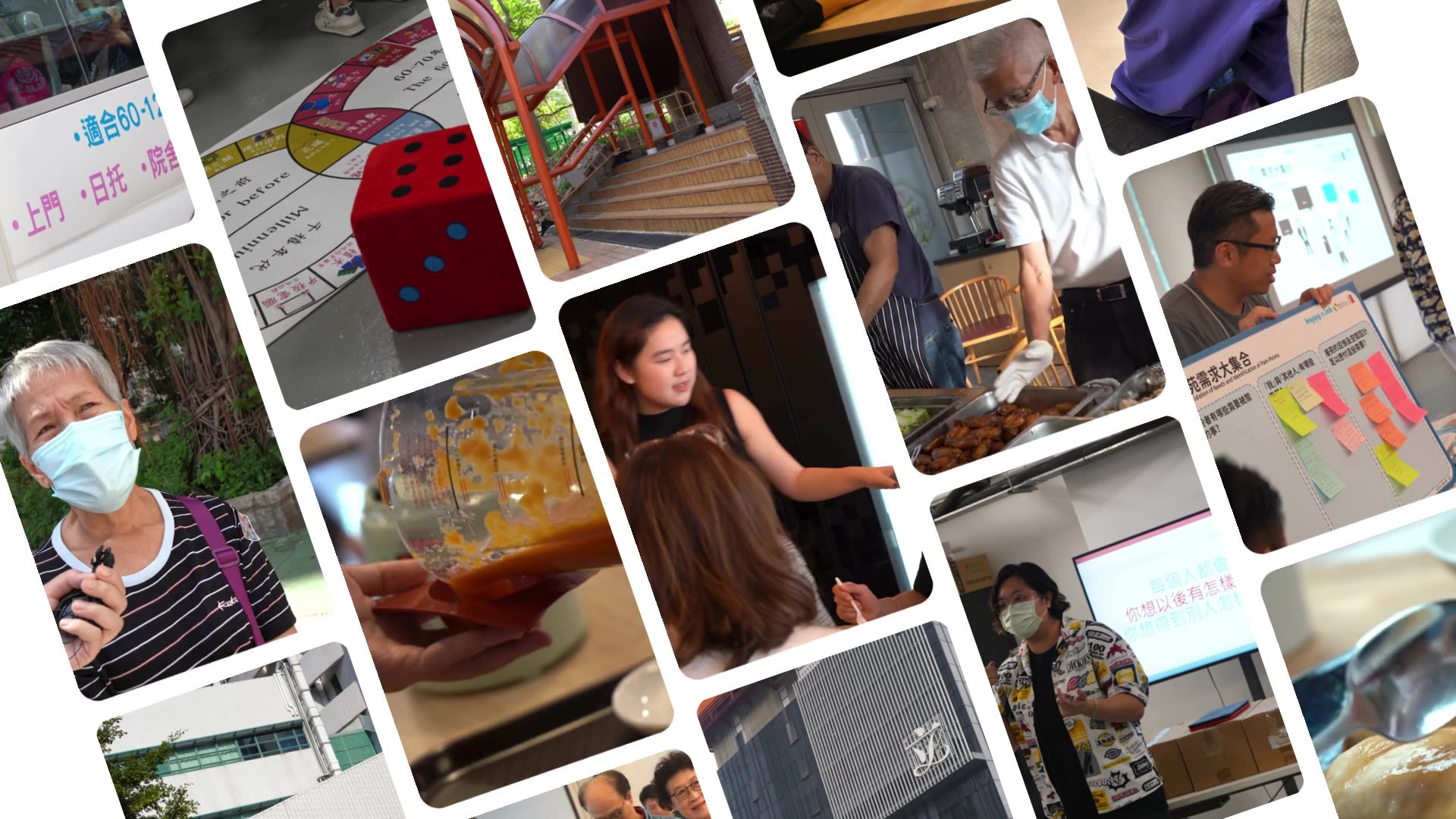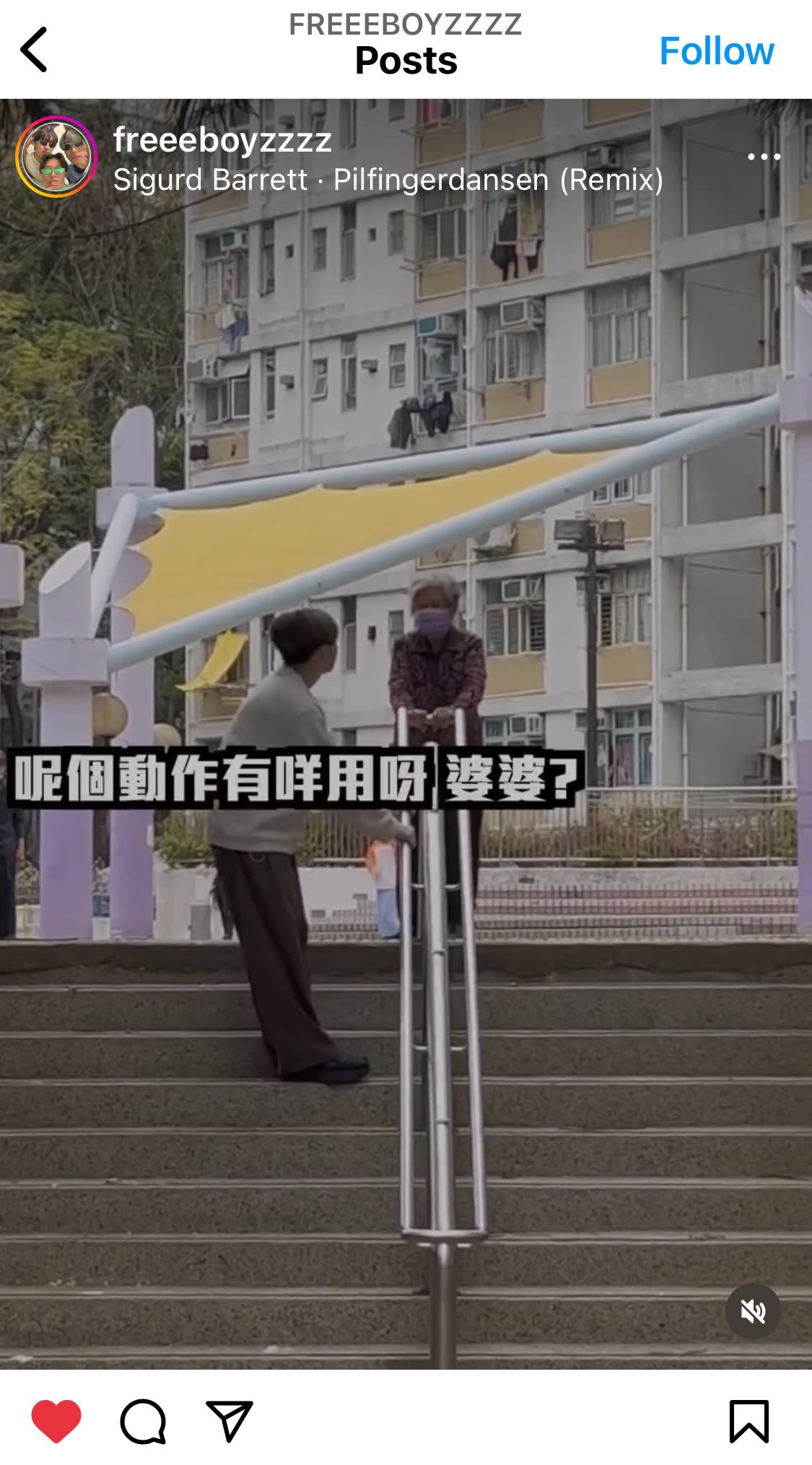We Age
In 2038, 1 out of 3 is elderly.
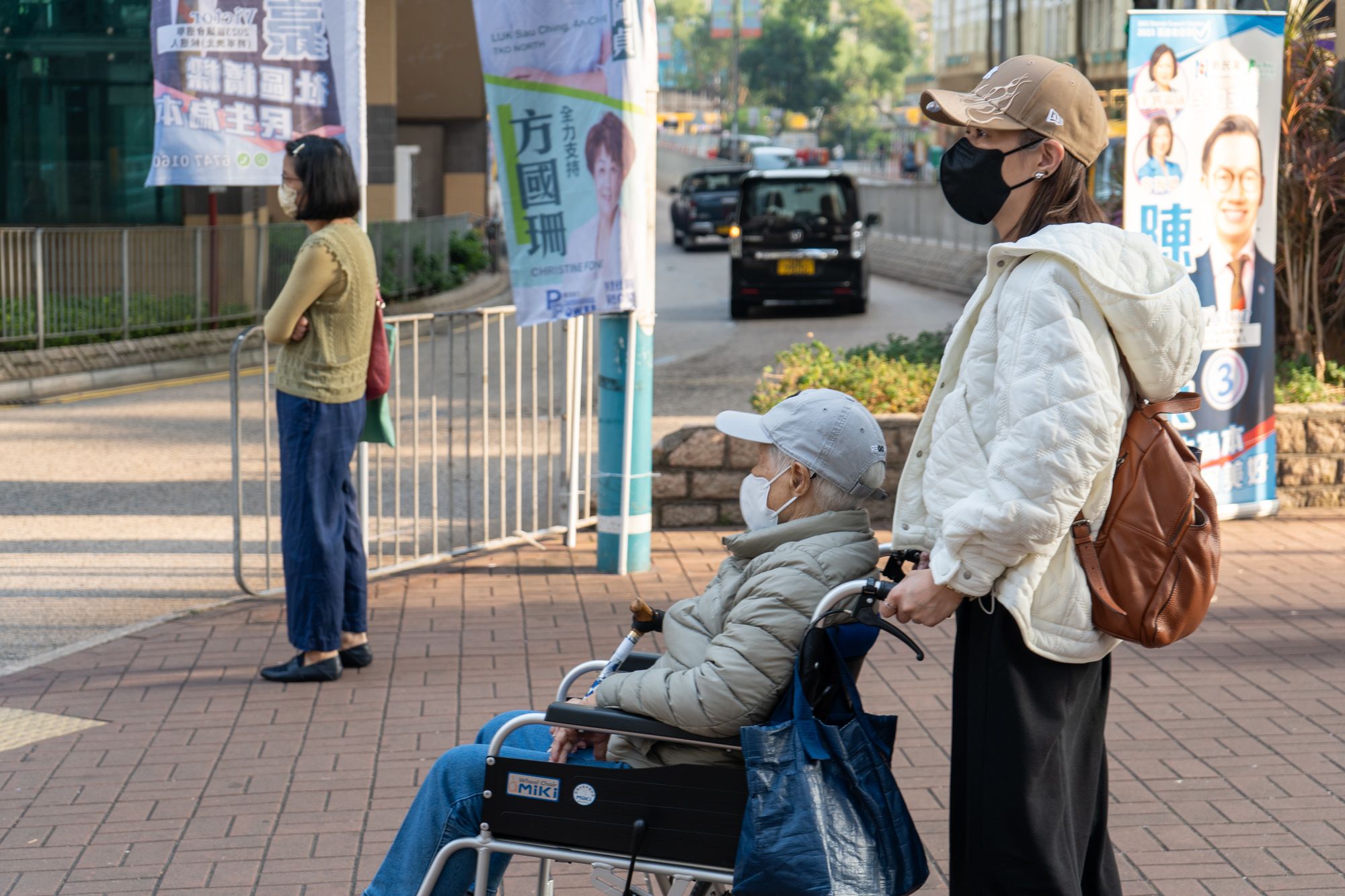
Hong Kong's Census and Statistics Department has predicted in 15 years, there will be one elderly in every three persons. Meanwhile, the United Nations Population Fund's (UNFPA) latest report said Hong Kong will champion as the world's oldest population by 2050.

Why is Hong Kong ageing so rapidly?
In this section, we break down Hong Kong's ageing situation
into THREE main factors with data.
Therefore, we age, at a fast pace.
Click the right arrow to see how our age group distributes towards a pyramid shape from 2020 onwards: fewer children (orange) and more older persons (red).
What does it mean for governance?
In light of the increased senior population, the government continuously spends on supporting the elderly's daily lives, including the $2 Scheme, Old Age Living Allowance, Health Care Voucher, and other elderly care services. In recent years, the government spent more on provisioning elderly-related campaigns and subsidies. Here is a highlight of the 2023/24 Budget:
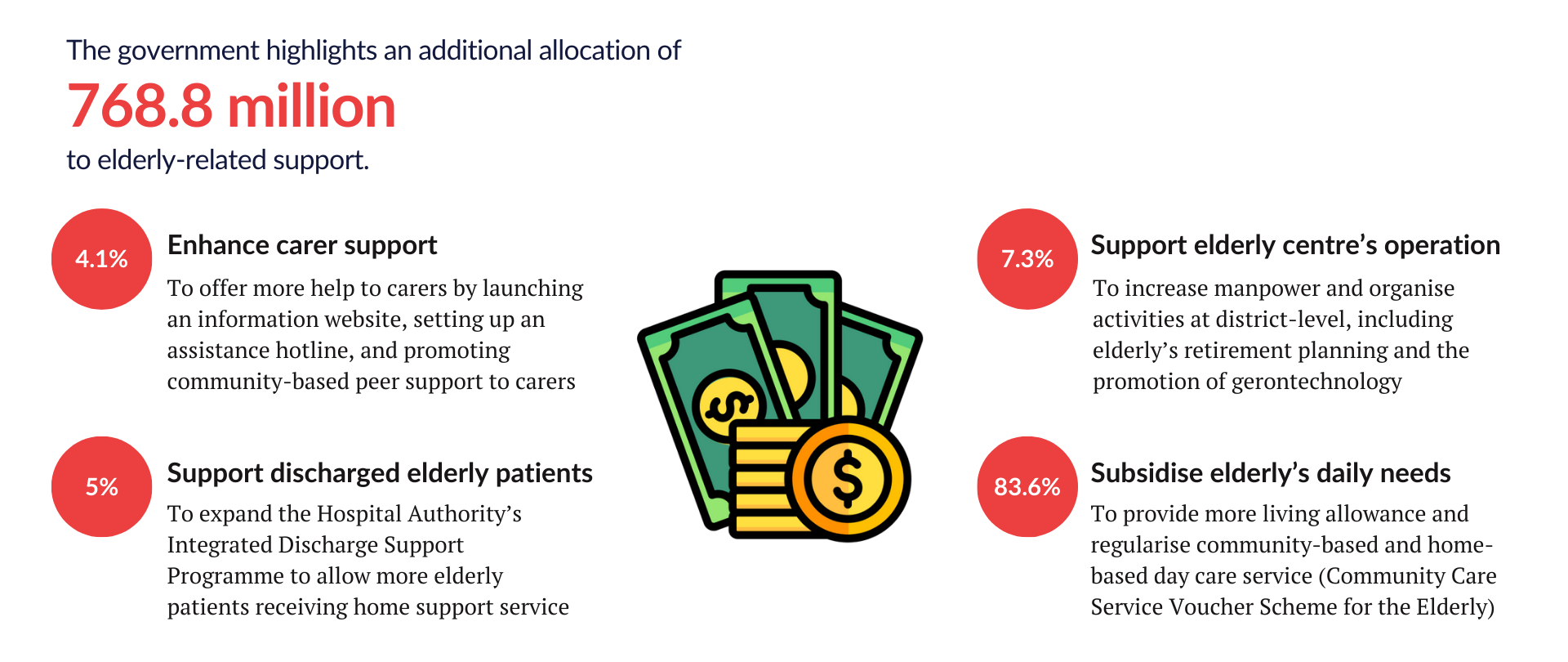
the crises
Besides hitting governance and finances,
ageing has put forth challenges to the elderly, their carers and public inclusivity.
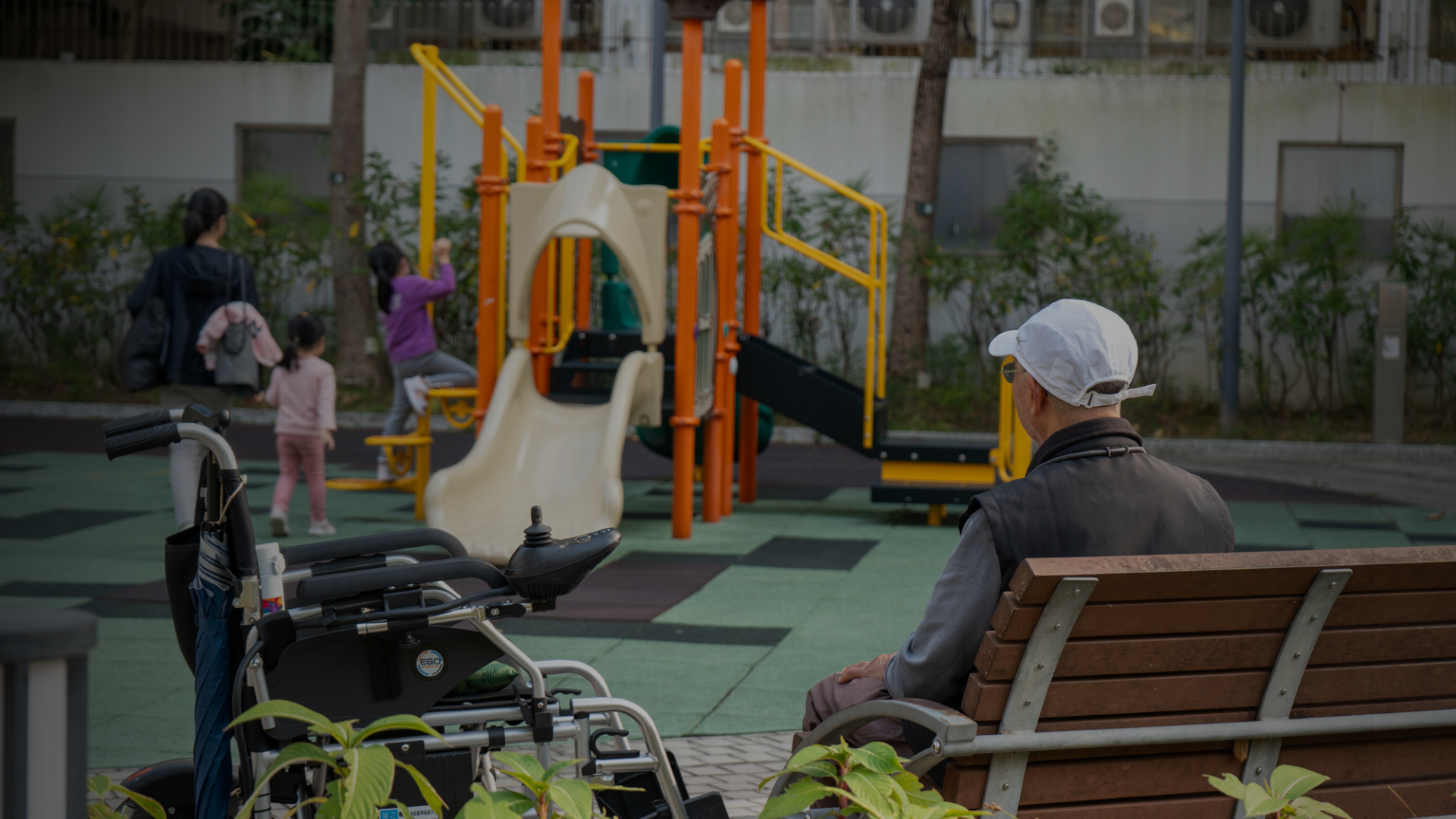
Lengthy waits at hospital halls drag both elderly patients and caretakers to mental exhaustion
Hong Kong's public health system is long renowned for its excellent quality of medical treatment, yet its lengthy wait time at hospital halls remains a persistent issue that pushes service users, especially elderly patients and their families, to the edge of mental breakdown.
During flu seasons, waiting time at hospital A&E departments could easily reach over seven or eight hours. While in specialist clinics, it still takes hours of additional wait for consultation and medication collection despite advanced booking.
Carmen Chan’s mother, who passed away two years ago, was a patient of Parkinson’s disease and breast cancer. Chan regularly took her mother to the public hospital clinic three to four times a week for follow-up treatment. Before visiting the clinic, Chan would make a reservation through the Hospital Authority’s mobile application, HA go. However, they still had to wait up to three to four hours before their turn.
“After a 10 to 20 minutes consultation, when we thought we were finally good to go, we still had to stay and wait for various things…. The waiting process was dreadful especially for my mother, as she was supposed to have dinner and get ready to sleep at that time,” recalled Chan.
Like many others, Chan struggled and once thought of sending her mother to a private hospital for treatment instead, yet she held back the decision due to financial concerns.
“Even the nurses do not know how long you would have to wait. This makes us feel terrible, like if you are sick, if you do not have money, then you can only sit there and wait,” said Chan.
During the wait, in fear that they would miss their turn and have to wait over again, Chan and her mother dared not to leave but stayed in the hall. Having nothing to do, Chan’s mother often dozed in her wheelchair. What made Chan most desperate was when her mother asked her when it was their turn. Having limited information on the exact waiting situation, Chan felt their wait was endless.
In Hong Kong, while the demand for public health services is on high rise, the shortage of healthcare professionals continues to burden the public health system. Understanding the difficulties and challenges faced by public hospitals, Chan was conscious that additional waiting is inevitable.
However, she hopes that the Hospital Authority could at least work on providing timely information regarding the waiting situation, to reduce the anxiety and to allow better time management of patients and their carers.
We reached out to the Hospital Authority for comments. The Authority responded that patients can obtain real-time queue status and reminders through the "EasyQ" function within the HA go application, yet, there is temporarily no estimated waiting time per user provided.
The Authority said they will take users' concerns and requests into consideration in their future application re-development.

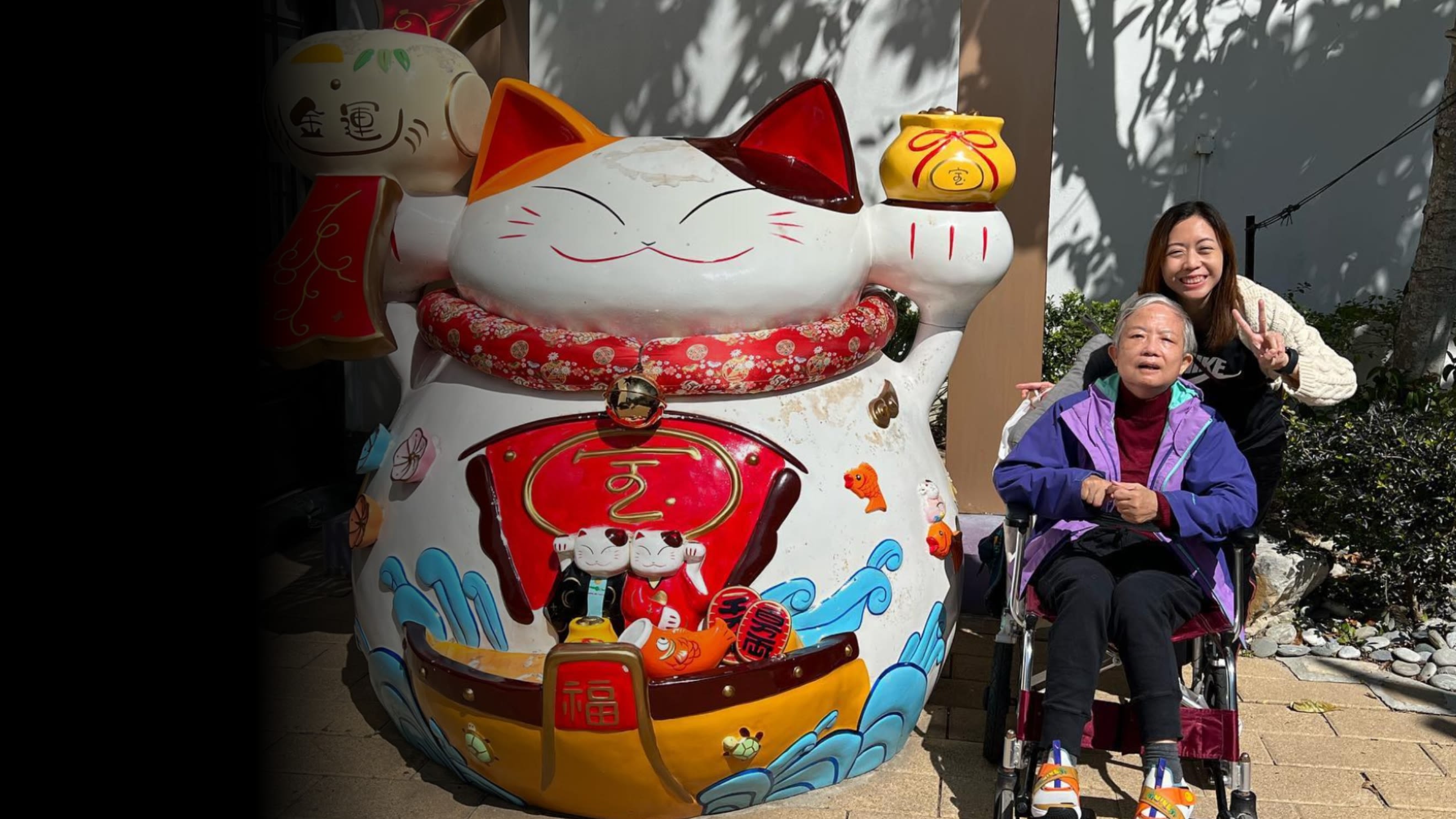
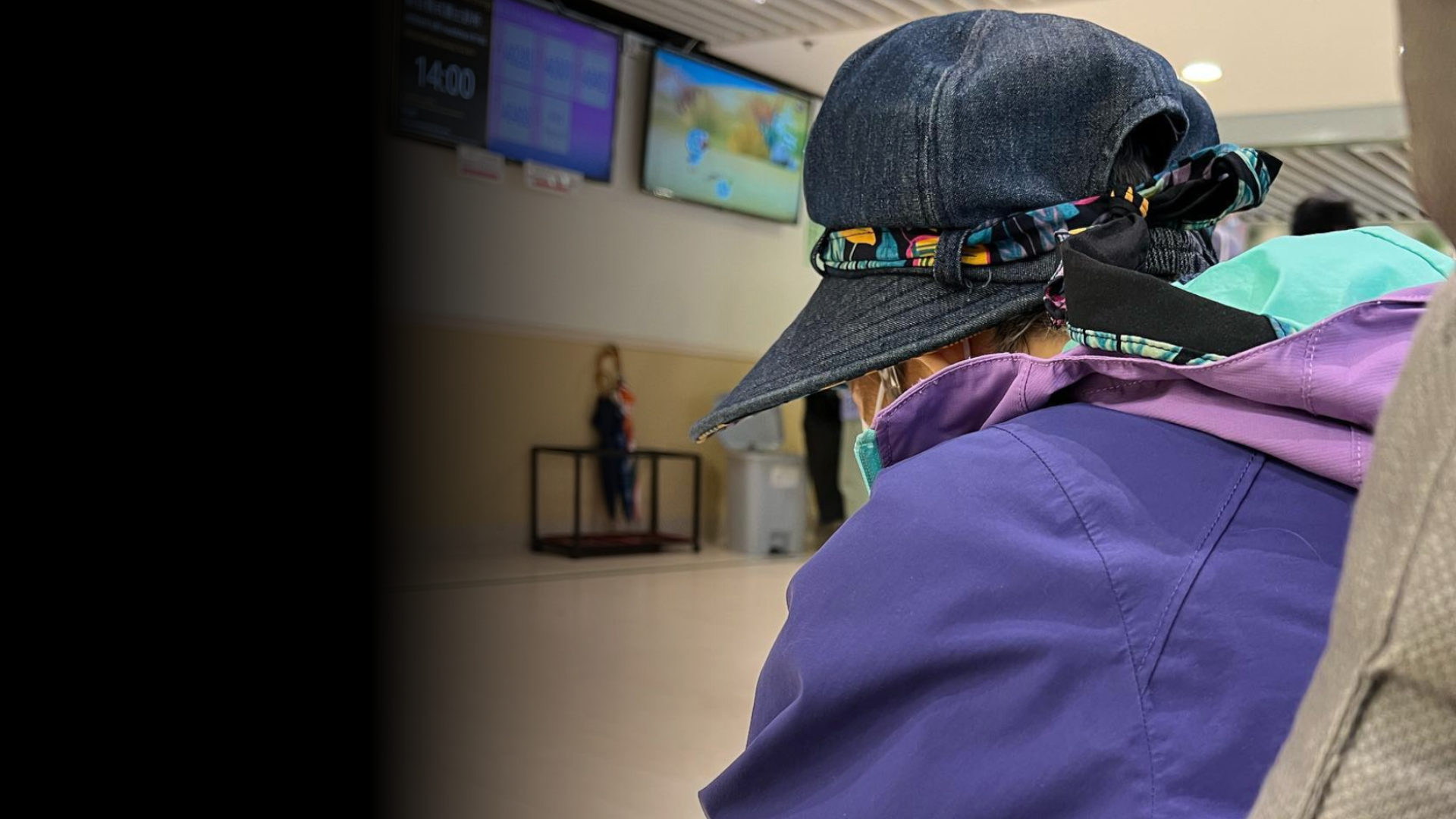
Overburdened elderly carers exhibit a need for more 'Care the Carers'
According to the Population Census 2021, about 330 thousand elderly in Hong Kong require long-term care and most of the caretaking lies on their children. Meanwhile, 28.8% of the carers are above 60 years old, signifying the city’s elderly are taking care of the elderly, which poses a series of challenges for future society.
Ching Pik Yee's 87-year-old husband became immobile and unmotivated after a fall that hurt his leg two years ago when he caught COVID-19. Living together, the 85-year-old wife has borne the sole caretaking responsibility.
Ching used to gather with her friends once a week but has been forced to cut the gatherings after her husband has fallen ill. She has since taken 24/7 care of his diet, cleansing and entertainment.
Yet, it physically burdens Ching as she suffers from back pain and has had spine surgery, "I cannot even help my husband up from the hospital bed and bring him home after his 40-day in-hospital."
The never-ending caretaking was also emotionally challenging. She was once on the verge of a breakdown and yelled at her husband until he cried out "Please don't be angry at me" in a soft voice which shocked her. She has since shown more compassion towards her husband and learned to control her emotions, as she described as "a two-way street" — affecting both the carer and care-recipient.
“A lot of elderly carers are simply stressed out,” said Tik Chi Yuen, a Legislative Councillor from the social welfare sector. “They are taking up this role [of carer] for 365 days, non-stop.”
Tragedies involving carers have also seen a rise, and at least six have made the news this year.
The government responded to the challenge with a series of carer-focused policies in the 2022 Policy Address, rolling out the three-year Care the Carers Campaign and a 24-hour hotline for caretakers.
The hotline 182183 is handled by social workers, where three-tier services are provided — delivering information, referral to support, and offering immediate outreach for those high-risk cases.
Carer Ching Pik Yee was not aware of this hotline. She thought this was inconvenient and probably would not use the service.
Councillor Tik Chi Yuen commented the hotline requires proactivity, “I don’t know if it's more like a grand slogan than concrete actions. What is more important is we reach out to the elderly and their carers in need, in person.”
Tik suggests forming a more systematic network to support elderly carers with community-level outreach and calls for different stakeholders’ cooperation, including the business sector, to knit a “safety net” for our elderly.
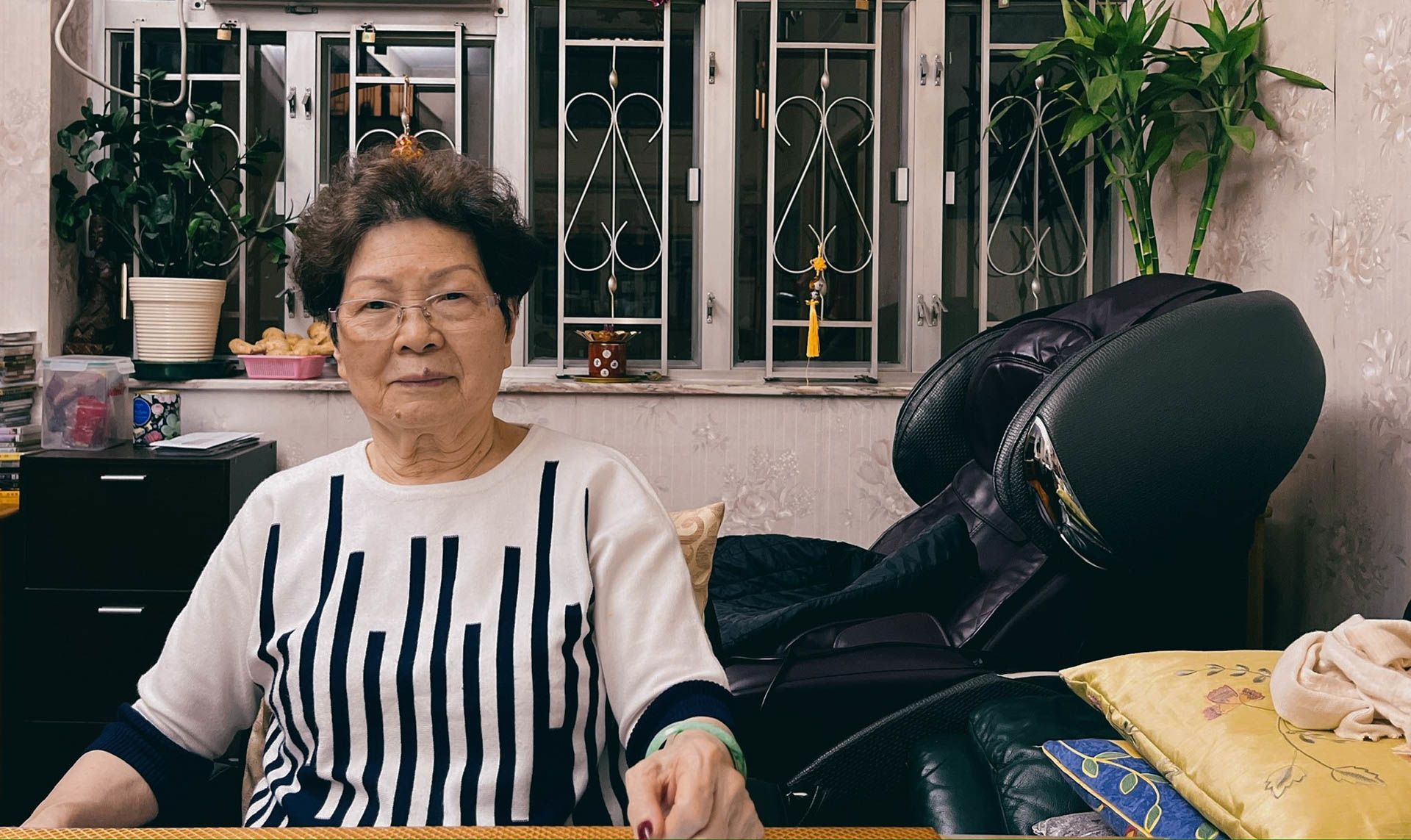
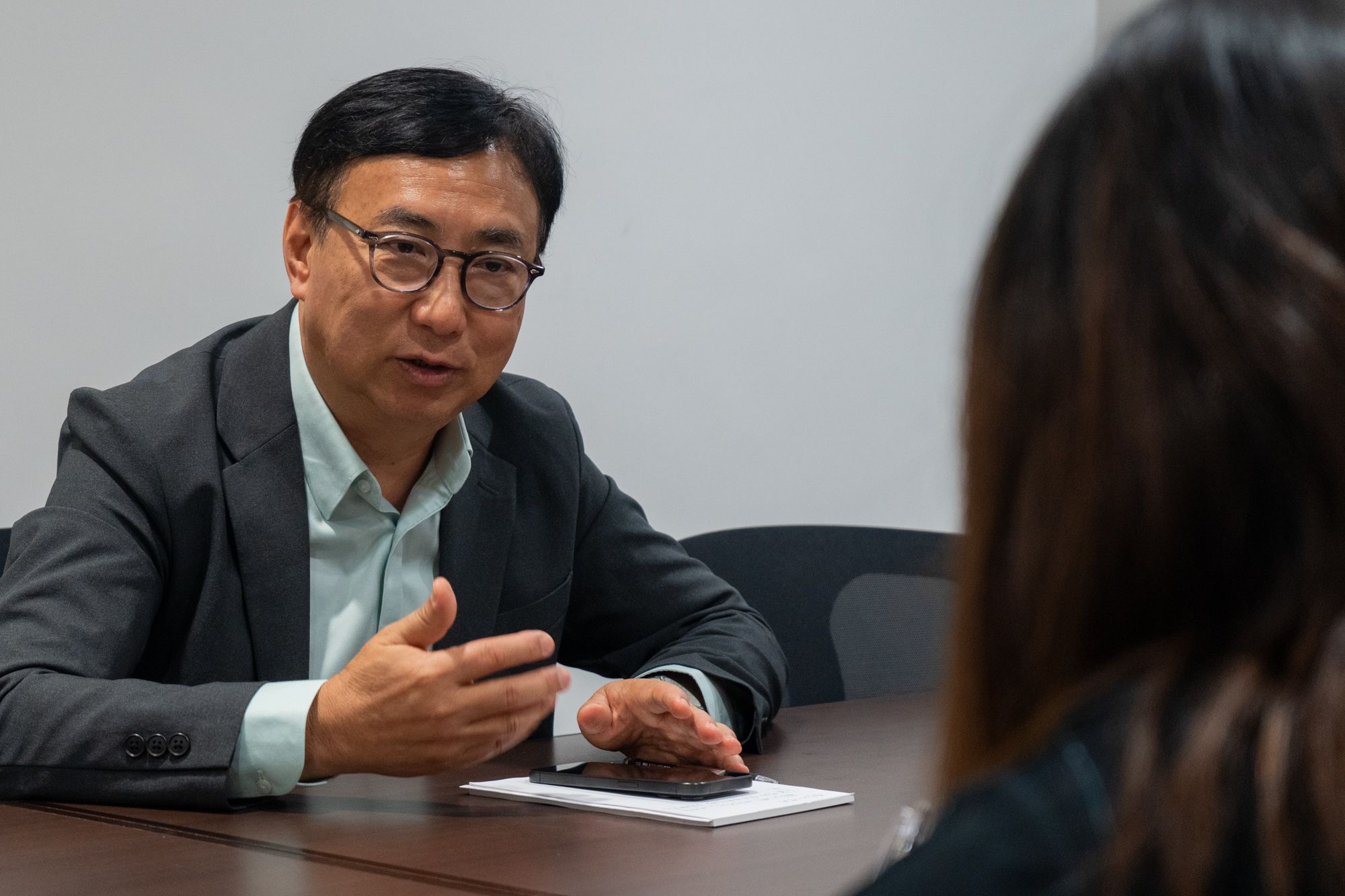
Local term "fai3-lou5" (translates to “useless old”) harms social inclusivity but is shaken up after a decade
Hong Kong slang "fai3-lou5" (「廢老」) symbolises a stereotype of the older persons. It is used widely to label them “useless old” based on some of the controversial behaviours. While it is without unanimity on who or when first coined the term, it is believed to have gained popularity from online forums LIHKG and HKGolden, especially among the younger netizens.
From 2009: Priority seats debate - who gets to sit?
In 2009, the city's railway network provider MTR introduced priority seats on its trains to encourage people to offer seats to people in need, including the elderly. The corporation then launched a series of campaigns in 2010, for example, putting smiley faces on the seats, to foster the seat-offering culture.
Since then, younger passengers were often pressurised to give the seats to older persons standing on trains, or they risked being chastised, thus came the nickname “humiliation seats”.
The intergenerational tension was further heightened as MTR doubled the number of priority seats from two to four per cart in 2016.
From 2019: Political divide and "blue ribbons"
The term has been masked with a political meaning since the wave of political movements triggered by the proposed Extradition Bill legislation in 2019.
Different political stances arose in the society, yet, most notably were the yellow (Pro-democratic) versus blue (Pro-Beijing or Pro-establishment) camps. The supporters of the blue camp were named "blue ribbons" by the opposing camp.
Propaganda flooded the Internet and many younger yellow camp supporters associated the "blue ribbons" with "fai3-lou5," criticising the elderly were indifferent to politics or supported the blue camp. Malicious comments often went along with the term, resulting in a wider divide across ages.
From 2021: Mass media plays a part in bridging the gap
There have long been TV shows to provide information for the elderly. However, from 2021, mass media shifted its focus and created variety shows that cast the elderly, such as Seniors Got Talent (literally translates to 'I am not fai3-lou5') and Sweet Grandpa from ViuTV, which positively portrayed the elderly and allowed the younger audience to better understand their capabilities.
Recently, an Instagram page posted viral reels of young hosts interacting with the elderly, which generated positive comments on the elderly image.
The term “fai3-lou5” has evolved with time and now is even used casually among the elderly.
Nancy, almost 70, said she has no hard feelings towards the term. “People have freedom of speech,” said Nancy. “[As long as] I know that I’m not 'fai3', then it’s okay!”
Deep Luk, a social worker from Caritas Mok Cheung Sui Kun Community Centre, said “In older times, we frame the elderly as someone passively needing care from others. I think it’s because we don’t understand them, or we didn't discover their ability.”
His work with the elderly has enabled him to recognise the potential and capability of the older generation, especially those in their 50s to 70s, and the centre is therefore organising unconventional activities for the elderly to “showcase their abilities and to minimise this negative impression.”
the opportunities
Amid the crises, there are opportunities arising from individuals,
NGOs and social enterprises that are driven to aid the elderly.
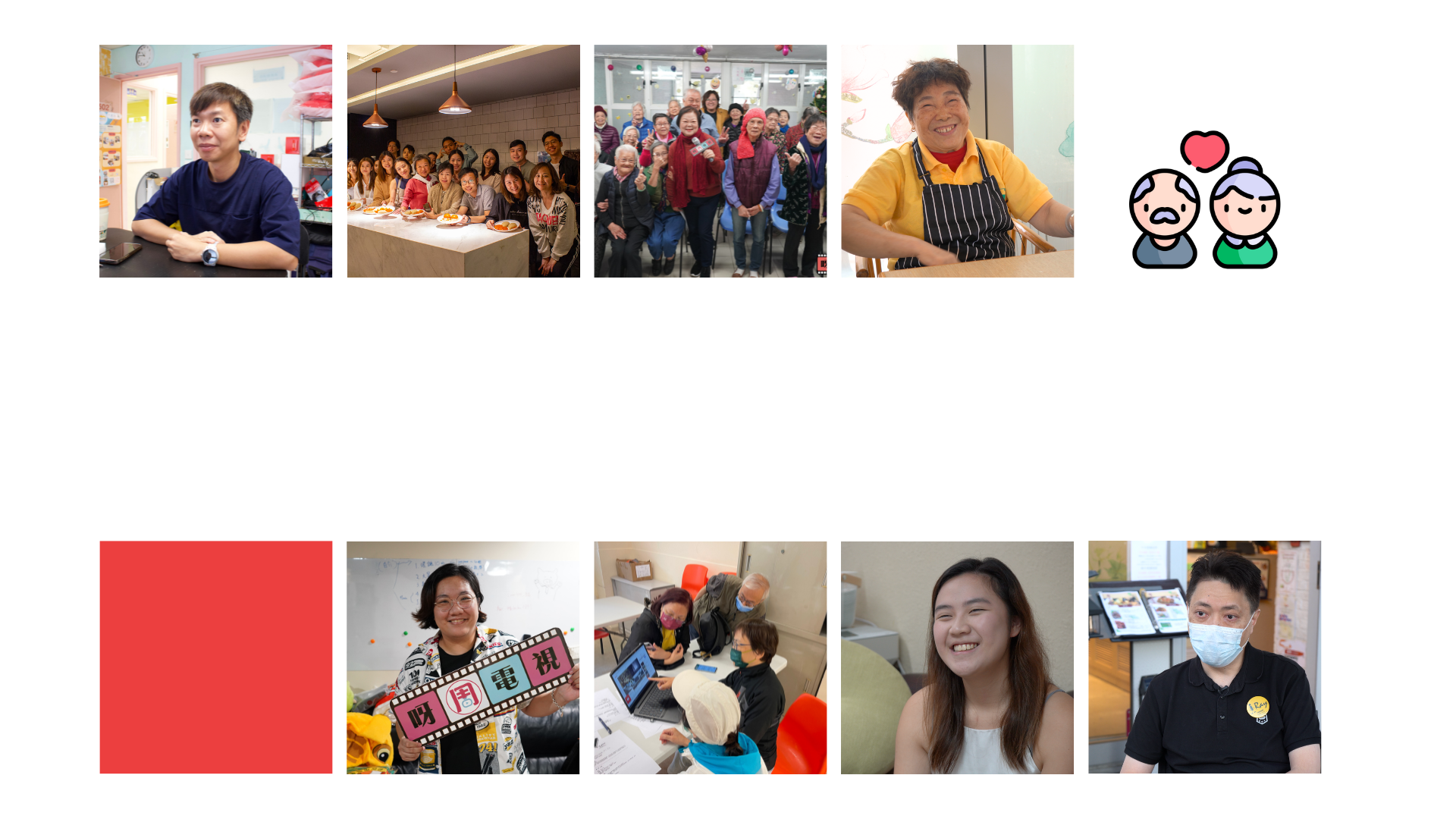
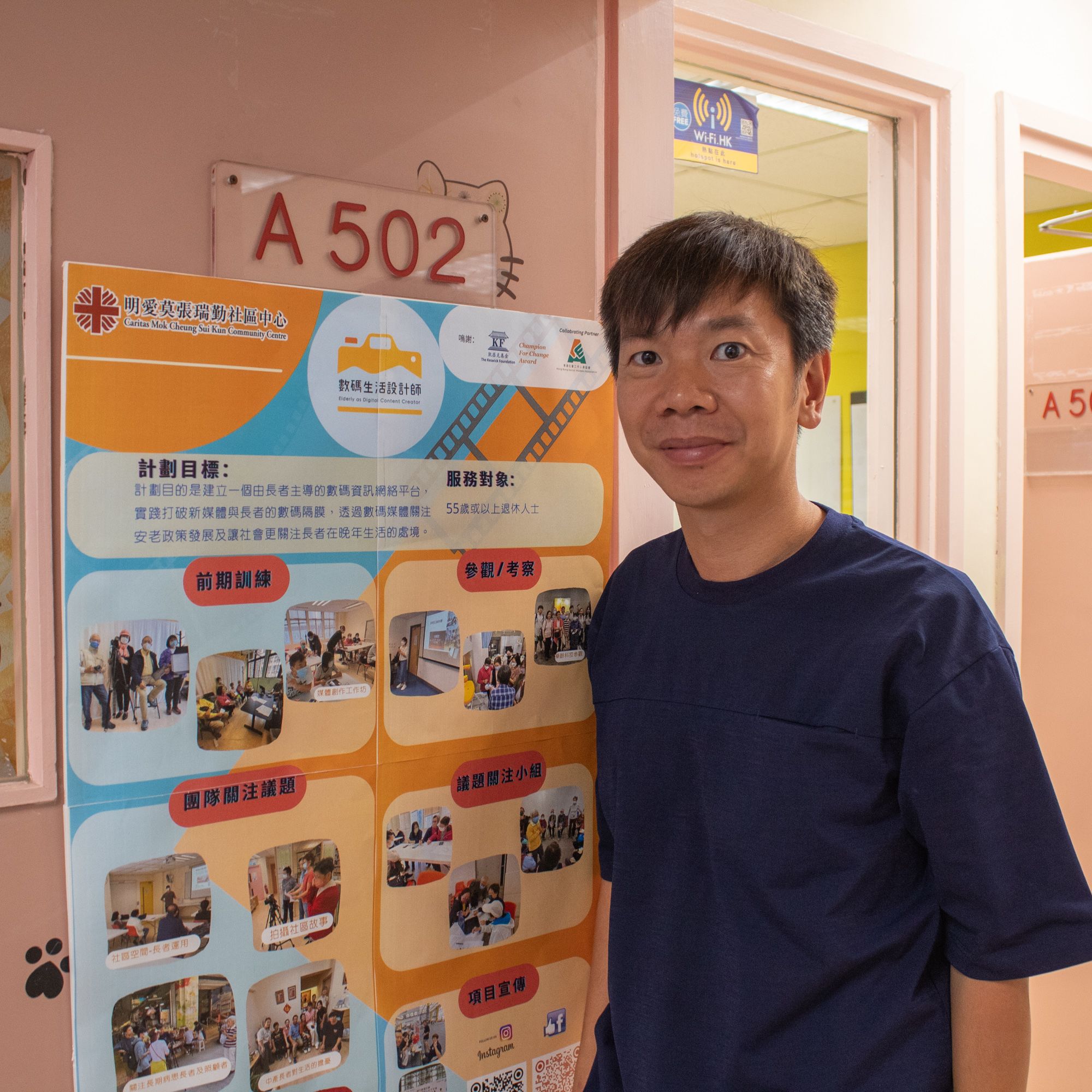
Social Worker Deep Luk at Caritas Mok Cheung Sui Kun Community Centre, Kennedy Town. Photo: Prudence Lam
Social Worker Deep Luk at Caritas Mok Cheung Sui Kun Community Centre, Kennedy Town. Photo: Prudence Lam
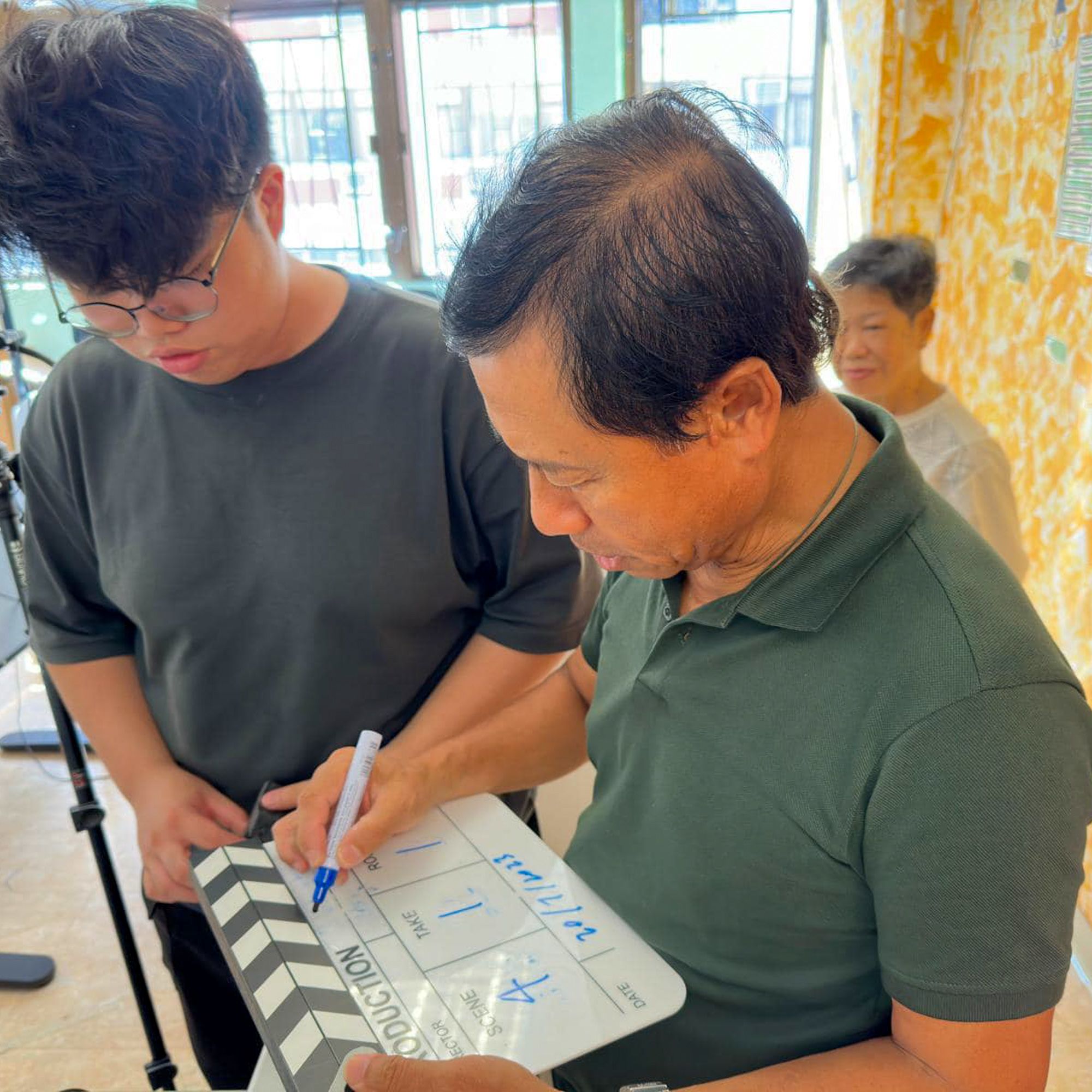
An elderly KOL writing the scene number of the next shooting on a clapperboard. Photo: courtesy of Caritas Mok Cheung Sui Kun Community Centre
An elderly KOL writing the scene number of the next shooting on a clapperboard. Photo: courtesy of Caritas Mok Cheung Sui Kun Community Centre

Centre Street is a slanted street crossing First Street, Second Street and Third Street in Sai Ying Pun. With the narrow stairs alongside, some pedestrians, including the elderly, tend to walk on the road next to vehicles, thus posing dangers. Photo: Prudence Lam
Centre Street is a slanted street crossing First Street, Second Street and Third Street in Sai Ying Pun. With the narrow stairs alongside, some pedestrians, including the elderly, tend to walk on the road next to vehicles, thus posing dangers. Photo: Prudence Lam
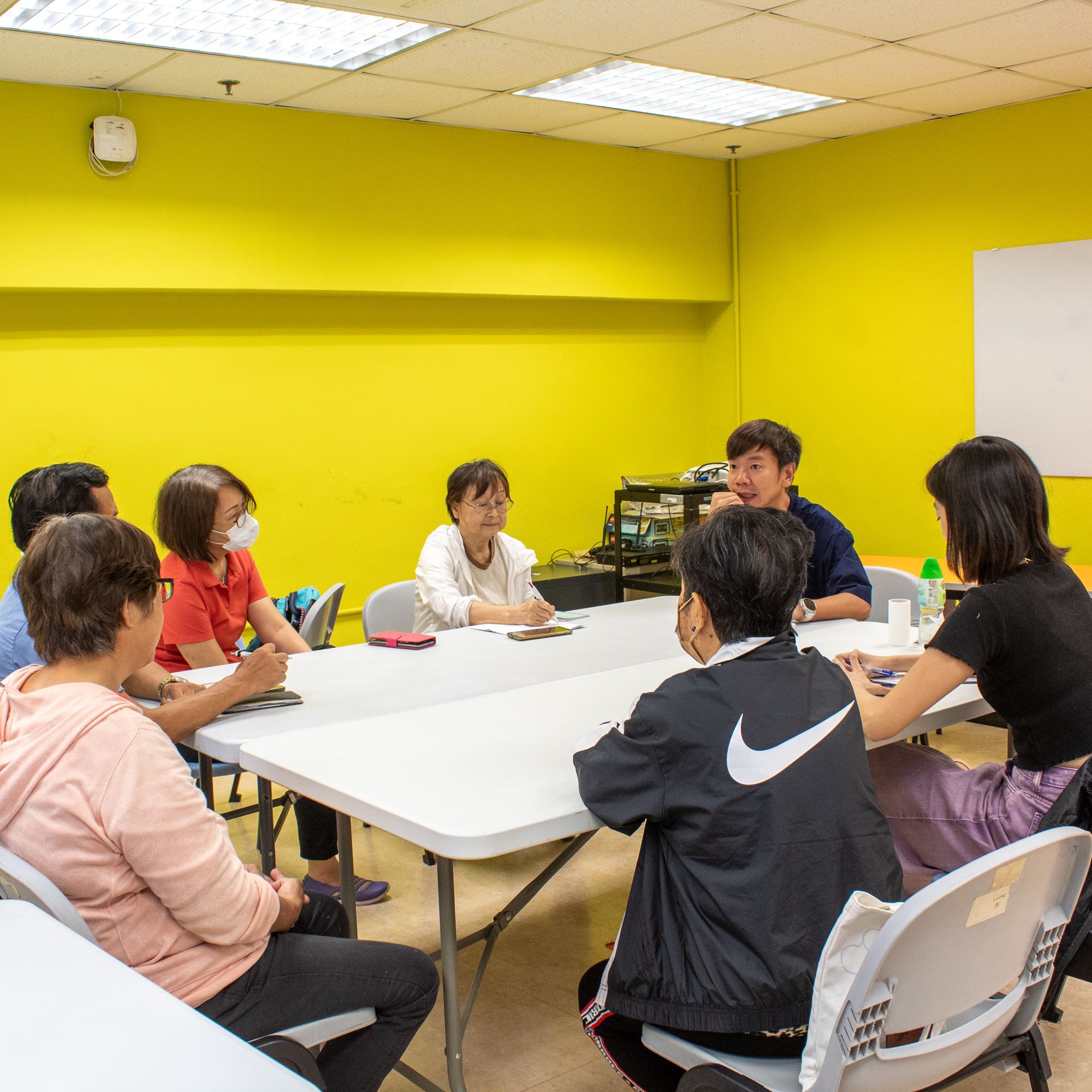
The elderly discuss the news and their opinions at Caritas. Photo: Prudence Lam
The elderly discuss the news and their opinions at Caritas. Photo: Prudence Lam
Caritas: bringing transformative activities to empower the old
In traditional elderly service, the elderly are portrayed as people who need care from others, but what if they can be the one who give care to others?
Community centres play a critical role in leading this transformation, by providing opportunities for the elderly to contribute to the community, or even among their older fellows.
Deep Luk, a social worker from Caritas Mok Cheung Sui Kun Community Centre (below ‘Caritas’), has observed a younger trend among the elderly and classified the 50- to 70-year-olds as “young old” who demand differently from the elderly we have in mind.
"A lot of the young olds love seeking fun and energy," said Luk.
During his 13 years of work at Caritas, Luk started off specialising in youth services. However, in 2018, he was put in charge of the elderly services for the 300 active members.

An elderly KOL writing the scene number of the next shooting on a clapperboard. Photo: courtesy of Caritas Mok Cheung Sui Kun Community Centre
Despite the age difference, he said the way of providing services to the seniors is more or less the same as the youths, as he described the elderly as “knowledge explorers” who are eager to join activities and learn new things. He then launched the “Elderly as Digital Content Creator” programme in 2021 where the elder participants are trained as key opinion leaders (KOLs) and produce videos about issues close to them.
Most of the participants had no prior experience in filming or post-production, but they were taught the skills and were encouraged to try, Luk said, “If they could press the button, they’re winning already!”
Being a KOL is particularly attractive to the elderly as they have a desire to share. They can share their work immediately on Facebook and WhatsApp, letting their family see what they have accomplished and take pride in them.

Centre Street is a slanted street crossing First Street, Second Street and Third Street in Sai Ying Pun. With the narrow stairs alongside, some pedestrians, including the elderly, tend to walk on the road next to vehicles, thus posing dangers. Photo: Prudence Lam
About 30 to 40 elderly take part in news discussion meetings at Caritas, where they freely discuss elderly rights policies, for example, the $2 Scheme, elderly home arrangements, and medical accessibility. Some also served as representatives to voice their discussed agenda to the District Council and Legislative Council directly.
In 2018, the group expressed safety concerns about road-crossing on Centre Street in Sai Ying Pun to the District Council, as the narrow road was dangerous for the elder pedestrians. The government bodies later took action to widen the crossing area and draw a line designating the road-crossing zone.
“The elderly benefit not only in terms of their personal growth, but also the community - we hope to give the elderly a voice and a chance to show care to their rights and opinions,” said Luk.

The elderly discuss the news and their opinions at Caritas. Photo: Prudence Lam
Nancy, almost 70, is an active member of Caritas, and she reckoned that she has advanced her communication skills by discussing news with her elder friends.
She worked in a managerial role until she retired even before 65 years old, and is now enjoying her retirement as planned: regular worshipping at church, joining community activities, and pursuing a master's degree at the Hong Kong Metropolitan University.
“I used to speak like a boss,” said Nancy. “You know, when I was at work, everyone just shut their mouth when I slapped the table. But I can’t now, right? I’m still learning how to better communicate with others.”
Through participating in group activities, she has expanded her social circle and learned to respect others while holding tight to her ideas. She also appreciates the exposure she gained as it is “never too old to learn.”
Luk said young olds like Nancy are competent and have moved with times, and he hopes the government can provide support to aid the elderly in running their own organization for other elderly.
“They can direct their own services for other elderly in need, and move forward with the community as it ages,” said Luk. “The elderly can take up more roles, yes, this is what I envision for the future.”
Chow TV: self-started elderly entertainment channel, allowing happiness for all ages
“I just have one simple goal - bring happiness to the elderly,” said Wing Chow, with a big smile on her face, in her cramped studio.
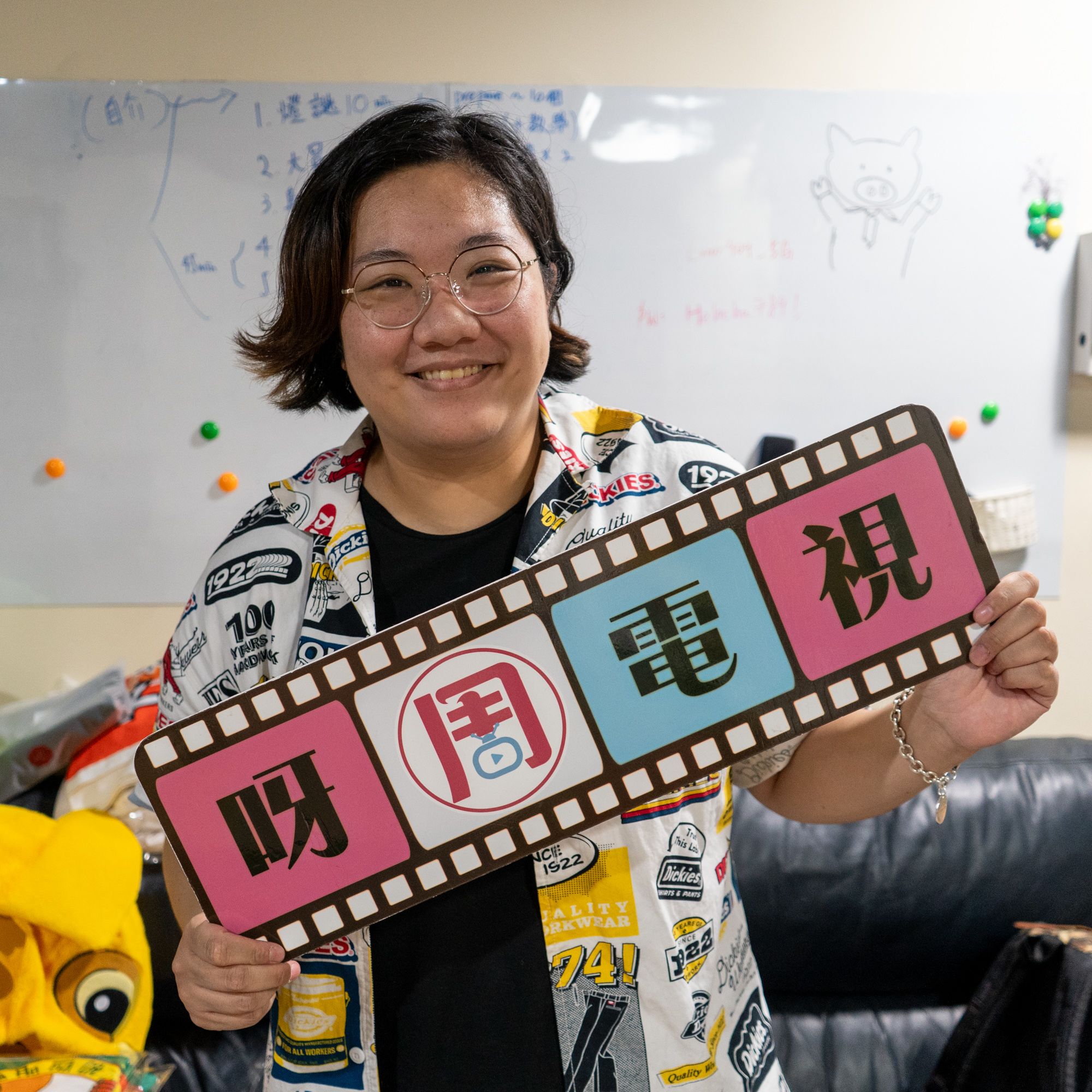
Wing Chow holding a board with the ChowTV brand logo at her studio. Photo: Alison Chan
Wing Chow solely runs an online media platform producing content that targets the elderly. It all started six years ago when she graduated from the City University of Hong Kong (CityU).
Chow was enlightened by her internship experiences at social enterprises, where she brought seniors in wheelchairs and living in elderly homes out to have fun and enjoy many of their “first times”: eating shabu-shabu, playing air hockey, and singing in party rooms.
"I was shocked to see a Japanese uncle got all dressed up in a suit for a buffet dinner, treating it very seriously.... It was really sad. Think about it, being trapped in elderly homes, they’ve never been able to go outside for years," she recalled.
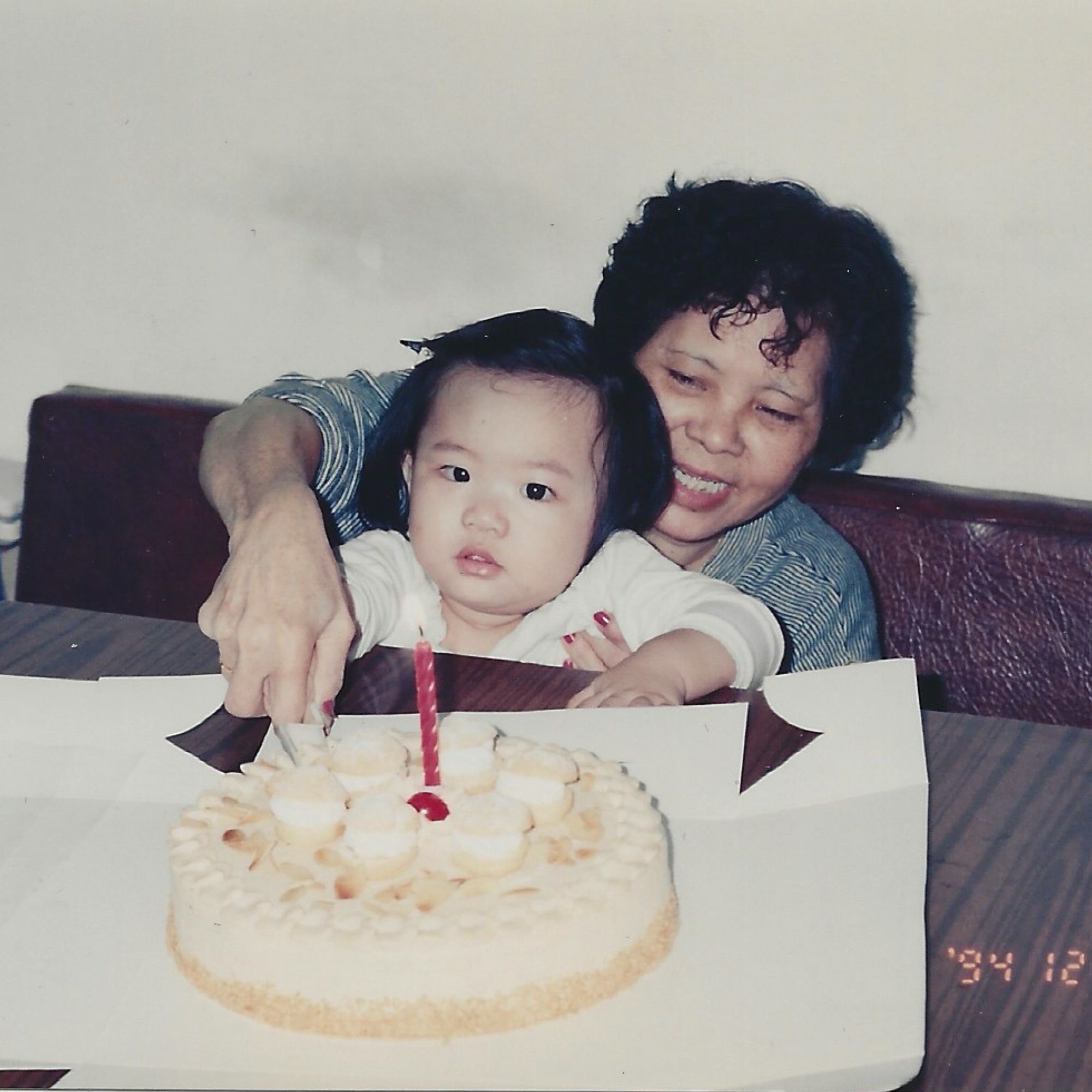
Wing Chow with her grandmother in 1994. Photo: courtesy of Wing Chow
Chow was constantly reminded of her grandmother during her work, who looked after her when she was small and the two were bonded like friends. Yet, they gradually grew distant and Chow regretted the less time spent with her grandmother’s rest of life.
Later, she started paying more visits to her grandfather at an elderly home. She then realised the aged find it hard to kill their pastimes and therefore came the strong desire to do something to bring happiness to the elderly.
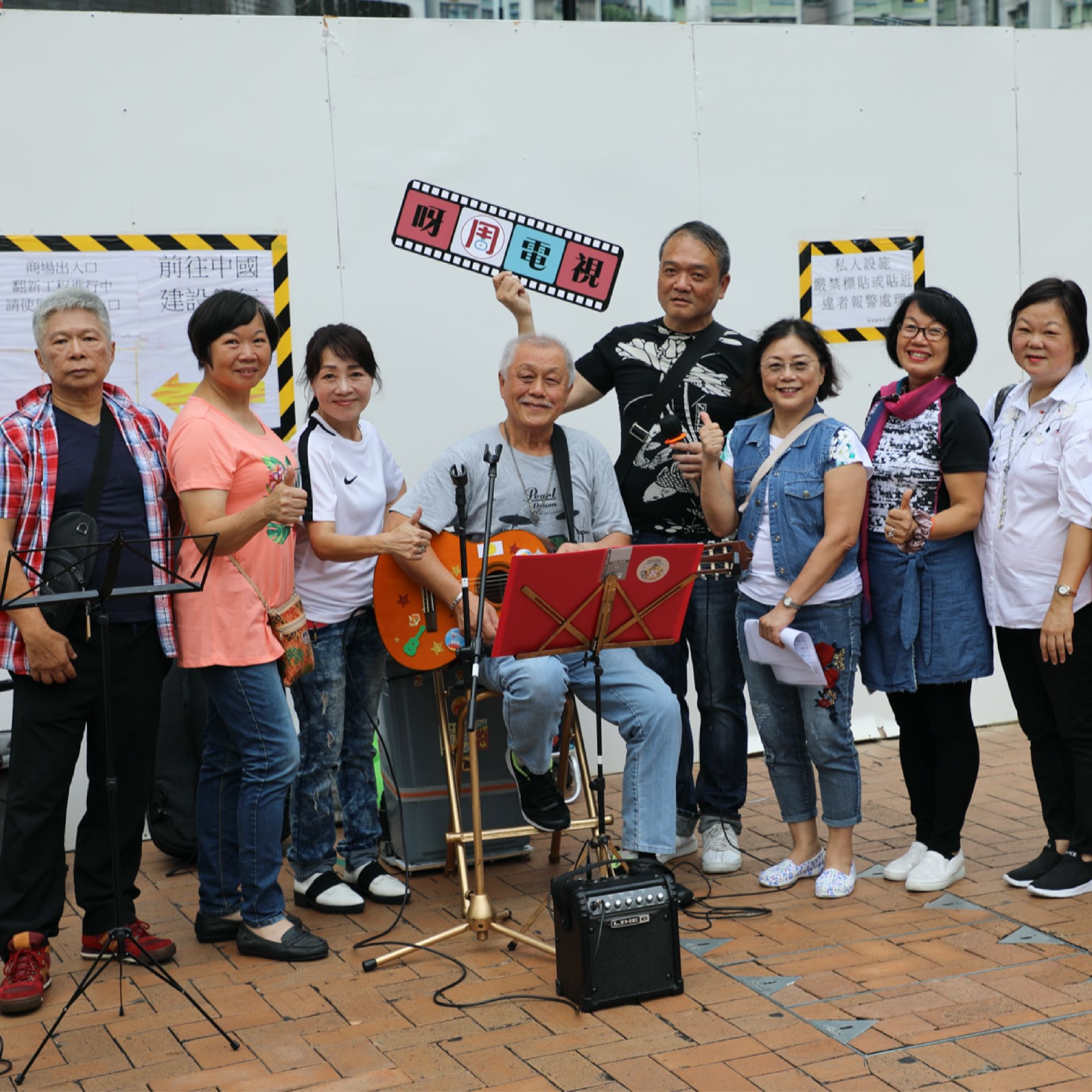
Chow brought the elderly crew to perform busking on the streets. Photo: courtesy of Wing Chow
When Chow graduated from CityU in 2017, instead of applying to jobs like most of us, she made a very different choice - starting a YouTube channel for the elderly, Chow TV, named after her surname.
Clasping the 200 thousand dollars of fund she won from a social innovation competition, she purchased some equipment and began filming vox pop videos on YouTube, asking the elderly to share their romantic stories and views.
The channel soon became more diverse, as a lot of elder acquaintances met from internships supported Chow and formed a crew of 15 sharing content about cooking, travelling, singing, planting and more. Some of the crew members later took part in external media productions, like featuring in music videos and TV reality shows.
The brand is also active on social media, especially on Instagram, which has accumulated over 17 thousand followers. As Chow reckons a lot of youngsters often associate "old" with "boring" or "outdated", she wants to shake off this common perception while calling for more understanding across ages.
“When you talk about ‘elderly’, many would still picture a grey-haired man in floral shirts and cheap plastic slippers…. But in my opinion, they are always hungry for fun and knowledge, and can be very stylish!”
Stepping into the sixth year of operation, Chow TV has gone through ups and downs as Chow described, but “money is definitely the main struggle” and was once the centre of an argument between her and her family.
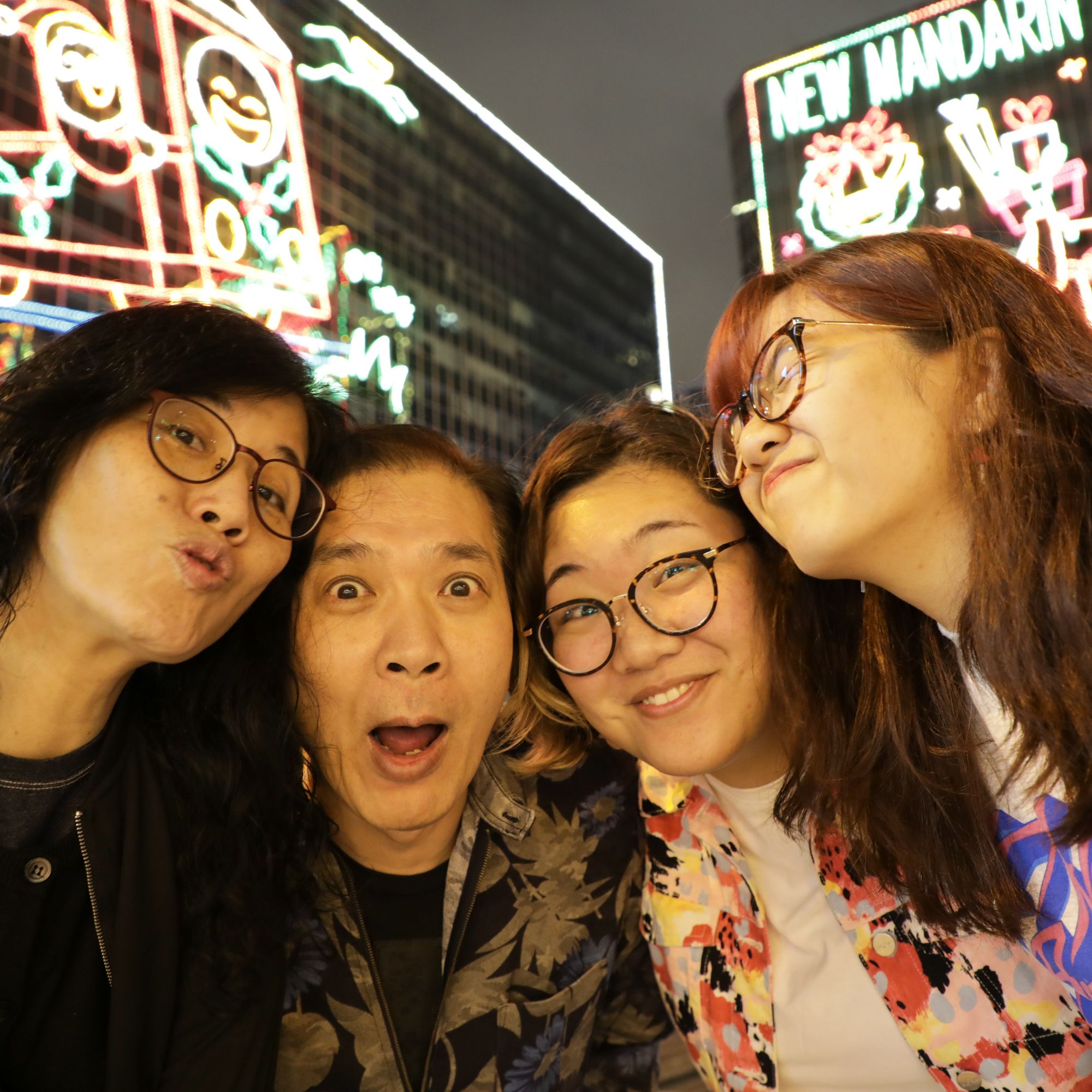
Wing Chow with her family. Photo: courtesy of Wing Chow
“My family never supported me from the beginning. They’ve said things like ‘why don’t you go seek a proper job’, ‘you can’t even live with that money’, ‘just stop and go to work’...”
Despite feeling sad, Chow was not deterred from pursuing her ideal - she promised her parents: if things did not work out by the time she turned 30, she’d stop. To sustain the channel, she began sourcing more external jobs like hosting KOL classes at schools and elderly centres, as well as doing multiple part-time jobs.
What kept her moving was simply the happiness she brought to the elderly and the connections they built through her work. The elder friends who once rejected her have joined her league, “It’s only because of you, if others called me to show up at events, I wouldn’t.”
Her enthusiasm has changed her parents’ attitude too. Chow’s parents are now showing support to her by attending events and press interviews, and she was touched as her parents finally acknowledged her work, and the things she wanted to do.
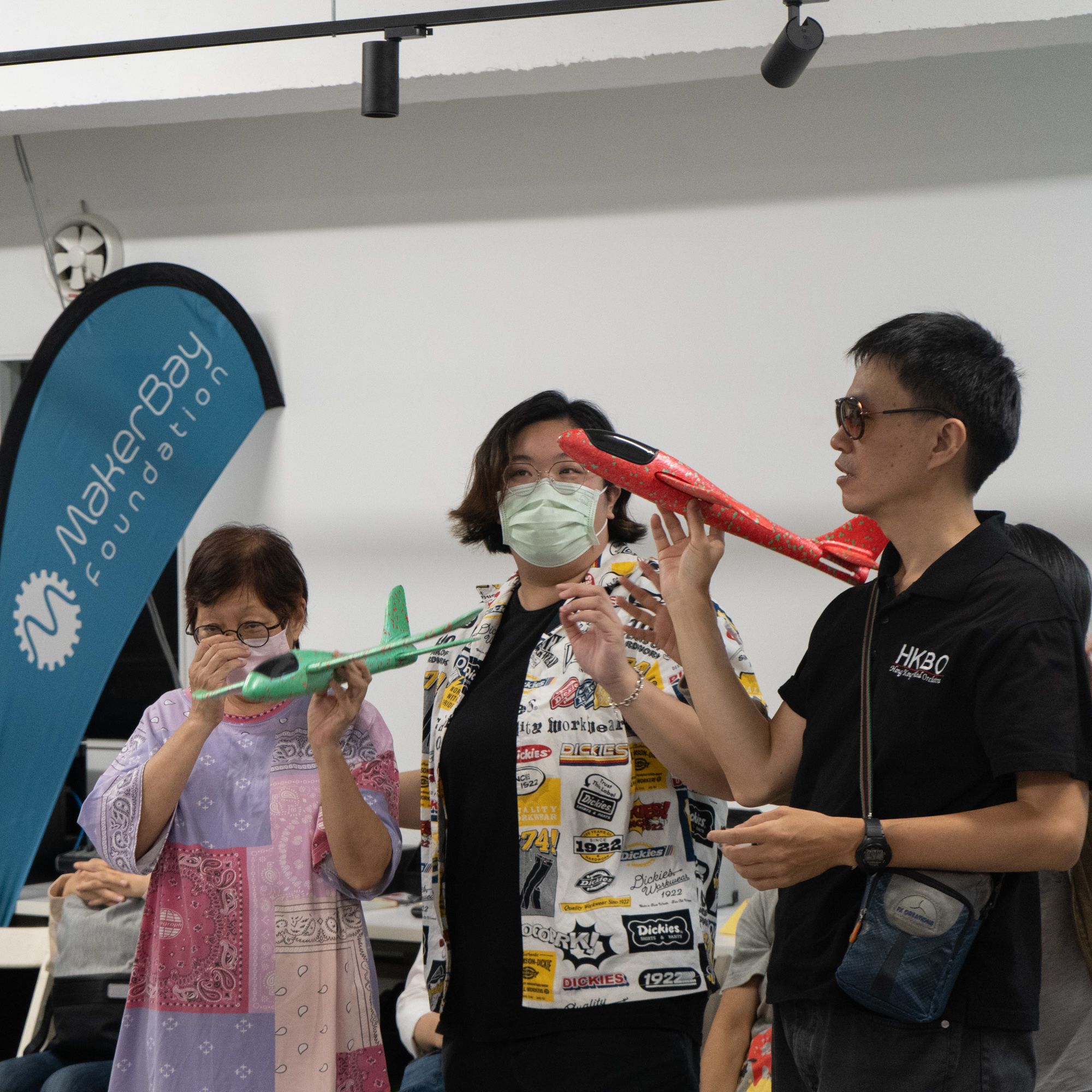
Wing Chow hosting a workshop for Impact Innovation Lab, a social innovation competition organised by the MakerBay Foundation. Photo: Alison Chan
Recently, Chow started working full-time Mondays to Fridays, but she continues to run Chow TV and serve the elderly in her limited free time.
She is now 30 years old.
When reminded of her promise made to her parents, she laughed, “Haha, so I’m doing full-time now to make money! That 30-year-old limit? It’s just a lie, I’ll never give up.”

Wing Chow holding a board with the ChowTV brand logo at her studio. Photo: Alison Chan
Wing Chow holding a board with the ChowTV brand logo at her studio. Photo: Alison Chan

Wing Chow with her grandmother in 1994. Photo: courtesy of Wing Chow
Wing Chow with her grandmother in 1994. Photo: courtesy of Wing Chow

Chow brought the elderly crew to perform busking on the streets. Photo: courtesy of Wing Chow
Chow brought the elderly crew to perform busking on the streets. Photo: courtesy of Wing Chow

Wing Chow with her family. Photo: courtesy of Wing Chow
Wing Chow with her family. Photo: courtesy of Wing Chow

Wing Chow hosting a workshop for Impact Innovation Lab, a social innovation competition organised by the MakerBay Foundation. Photo: Alison Chan
Wing Chow hosting a workshop for Impact Innovation Lab, a social innovation competition organised by the MakerBay Foundation. Photo: Alison Chan
Mealingful: making meals enjoyable for the old
Founded by a team of four university students in 2019, Mealingful is an online platform that sells and delivers soft meals. Mealingful hopes to "make every meal meaningful" and improve the dining experience for seniors having dysphagia, or, difficulty swallowing. They partner with local food factories to produce moulded soft meals for individuals and elderly homes.
Gingko House: hiring seniors who find purpose in work
While there is no statutory retirement age in Hong Kong, most would believe one has to retire by 65 years old. Contrary to the common belief, Gingko House is a social enterprise founded in 2003, the first of its kind to promote senior employment.
the outlook
Ageing is not a problem but an inevitable societal phenomenon.
Looking into the future, how can Hong Kong enhance age-friendliness in urban design and policymaking?
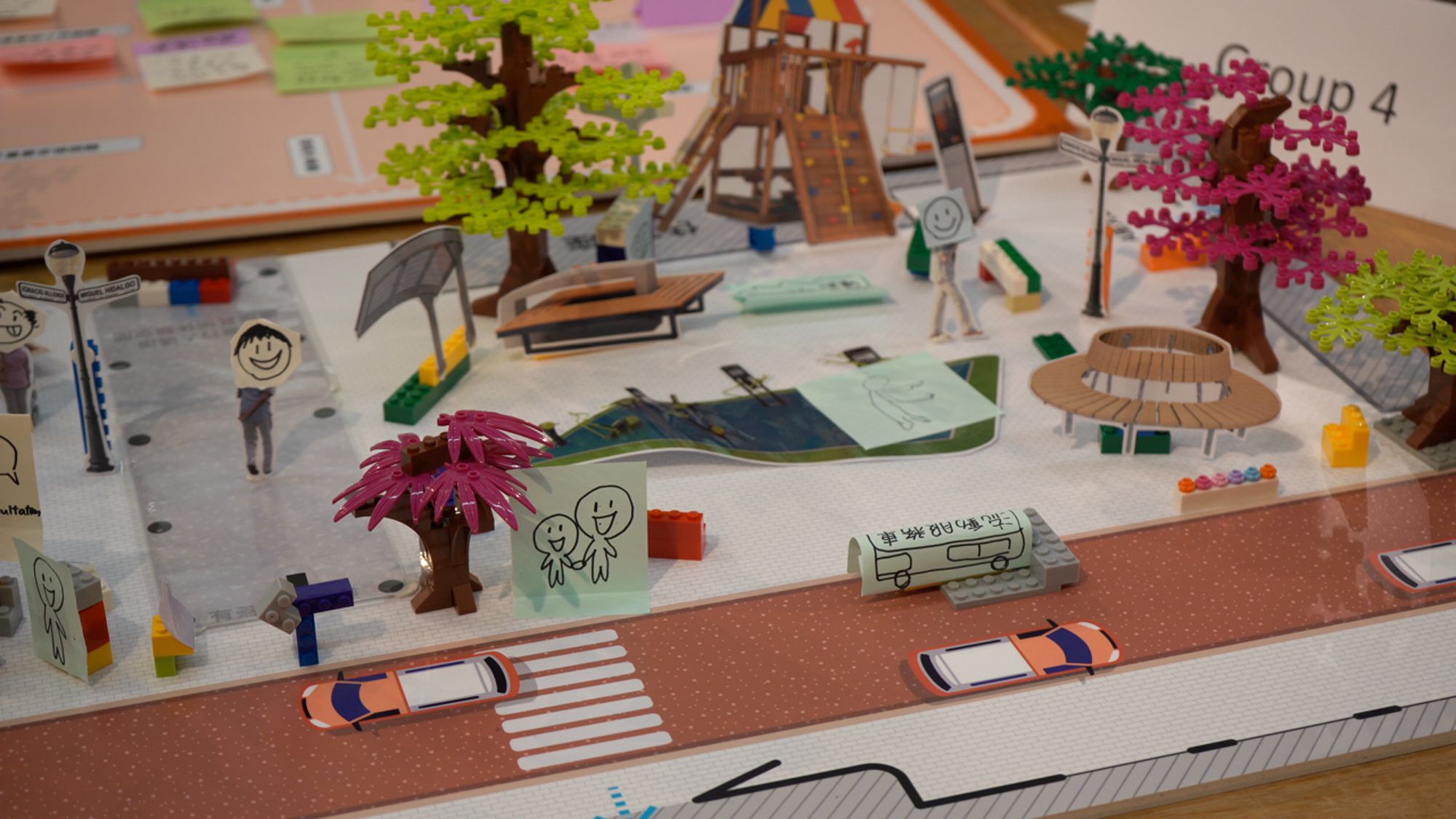
Apart from service-based assistance, our urbanscape shall be transformed to cater to the seniors' needs to achieve happy ageing. All-rounded and tailored transportation and outdoor spaces and buildings are both essential for building an age-friendly city, according to the World Health Organization.
In 2012, it launched Universal Accessibility Projects that promote mobility among the elderly by constructing more accessible facilities like elevators and ramps. The Projects now expanded to include the facilities in housing estates.
Yet, other than accessibility, the elderly now demand more from the community: resilience, network, participation and inclusion. An urban design-focused participatory initiative at the Chinese University of Hong Kong (CUHK) is trying to make it happen:
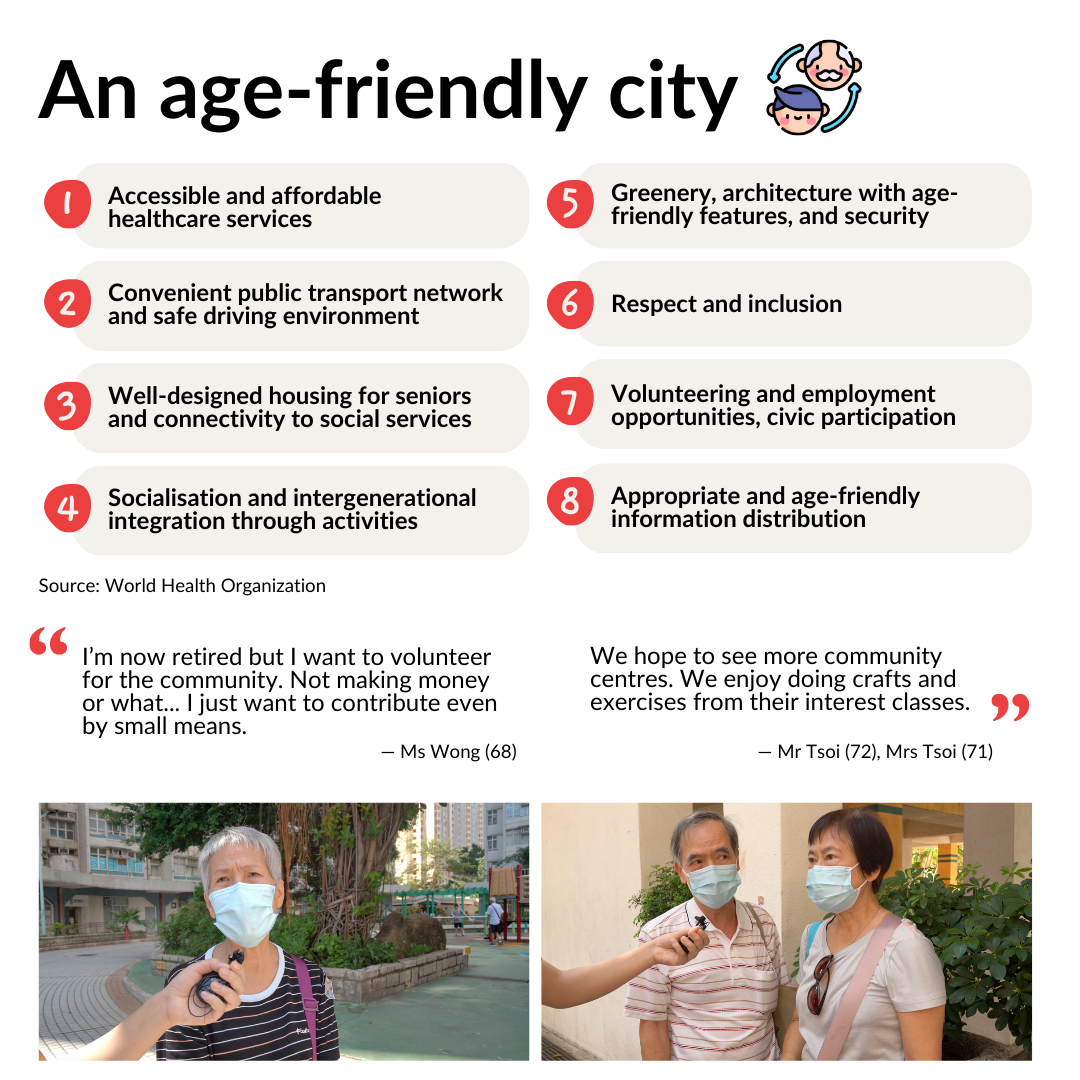
Legislative Councillor Tik Chi Yuen echoes Professor Mo's viewpoint and urges the government to set up a task force dedicated to solving the crises along with the city's ageing population, in addition to a 10-year plan similar to the city's housing strategy.
He described it as "absolutely necessary" and that the government was short-sighted without a semi-long-term plan ready to cope with the rising elderly proportion.
"It's about time we see our elderly as social capital. The seniors can contribute greatly to our society, against the common perception: a burden to society or someone who awaits passive care," said Tik.
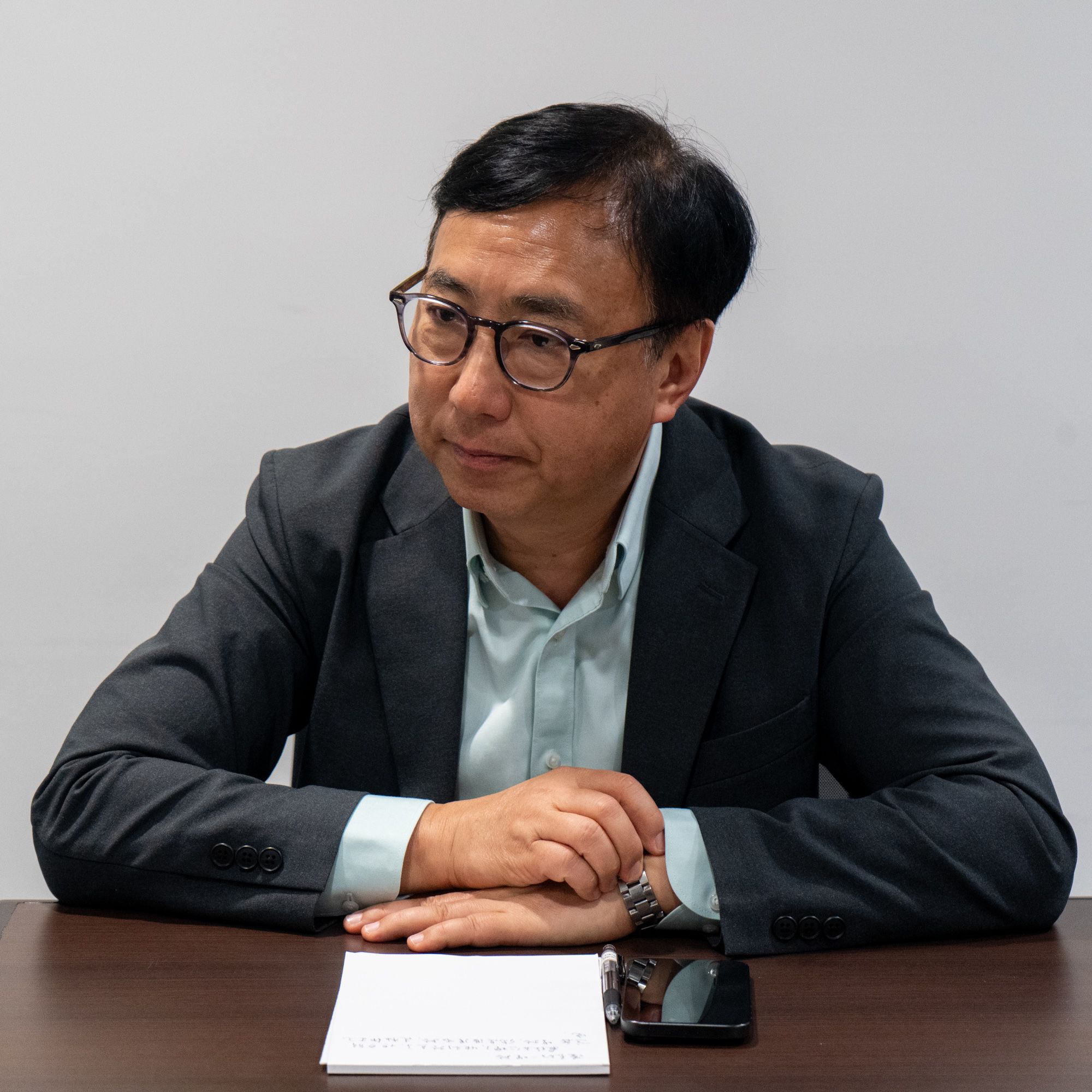
Social Welfare Representative Tik Chi Yuen. Photo: Alison Chan
Social Welfare Representative Tik Chi Yuen. Photo: Alison Chan

We Age
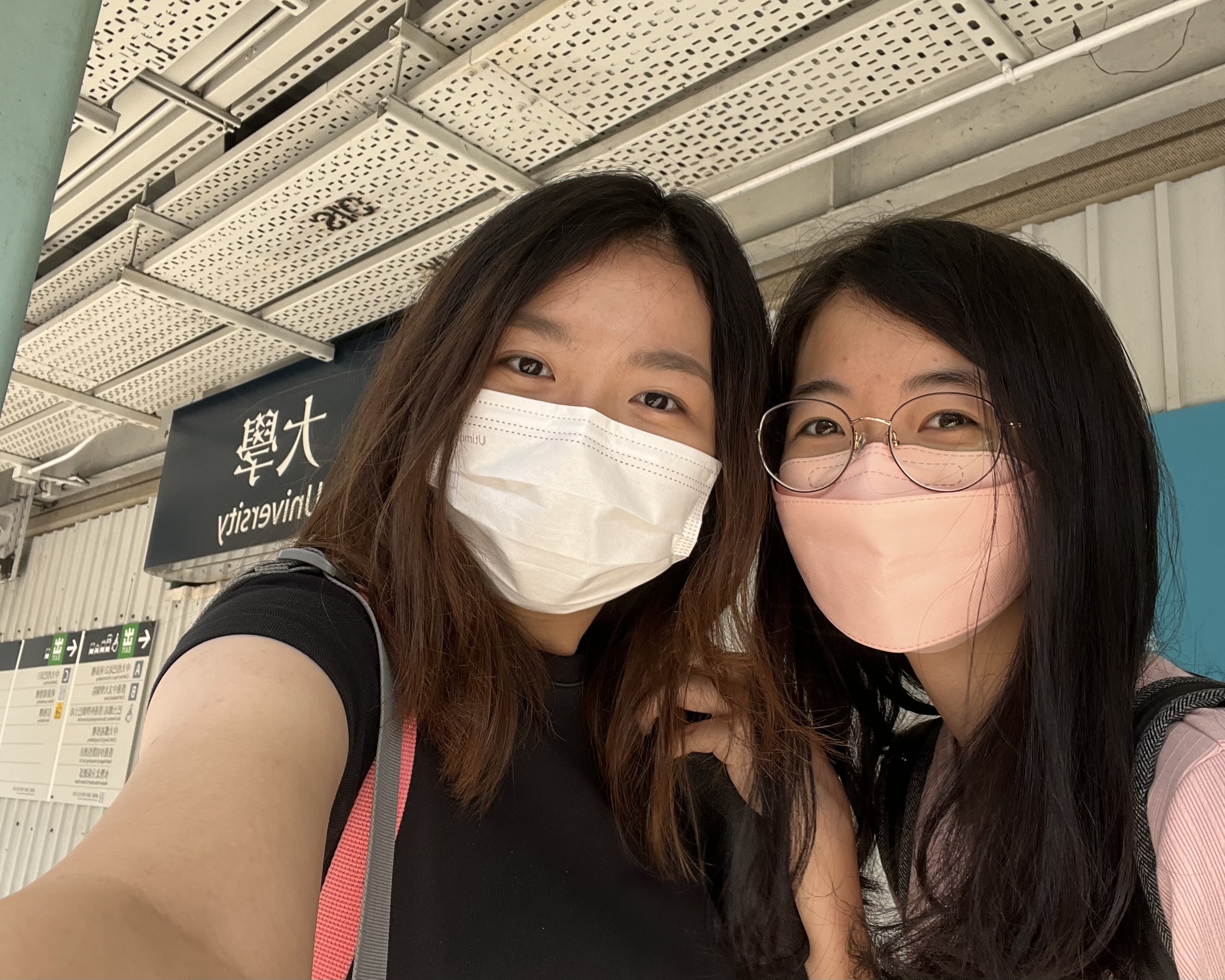
Words from the team
The website is co-produced by Prudence Lam and Alison Chan, both final-year Journalism students at HKU. We explored ageing in Hong Kong as a manifold issue and we hope to raise discussions on improvements in the quality of life for the greater elderly population in the near future — because, frankly, we all age.
Feel free to reach out to us if you have any ideas or comments about ageing in Hong Kong.
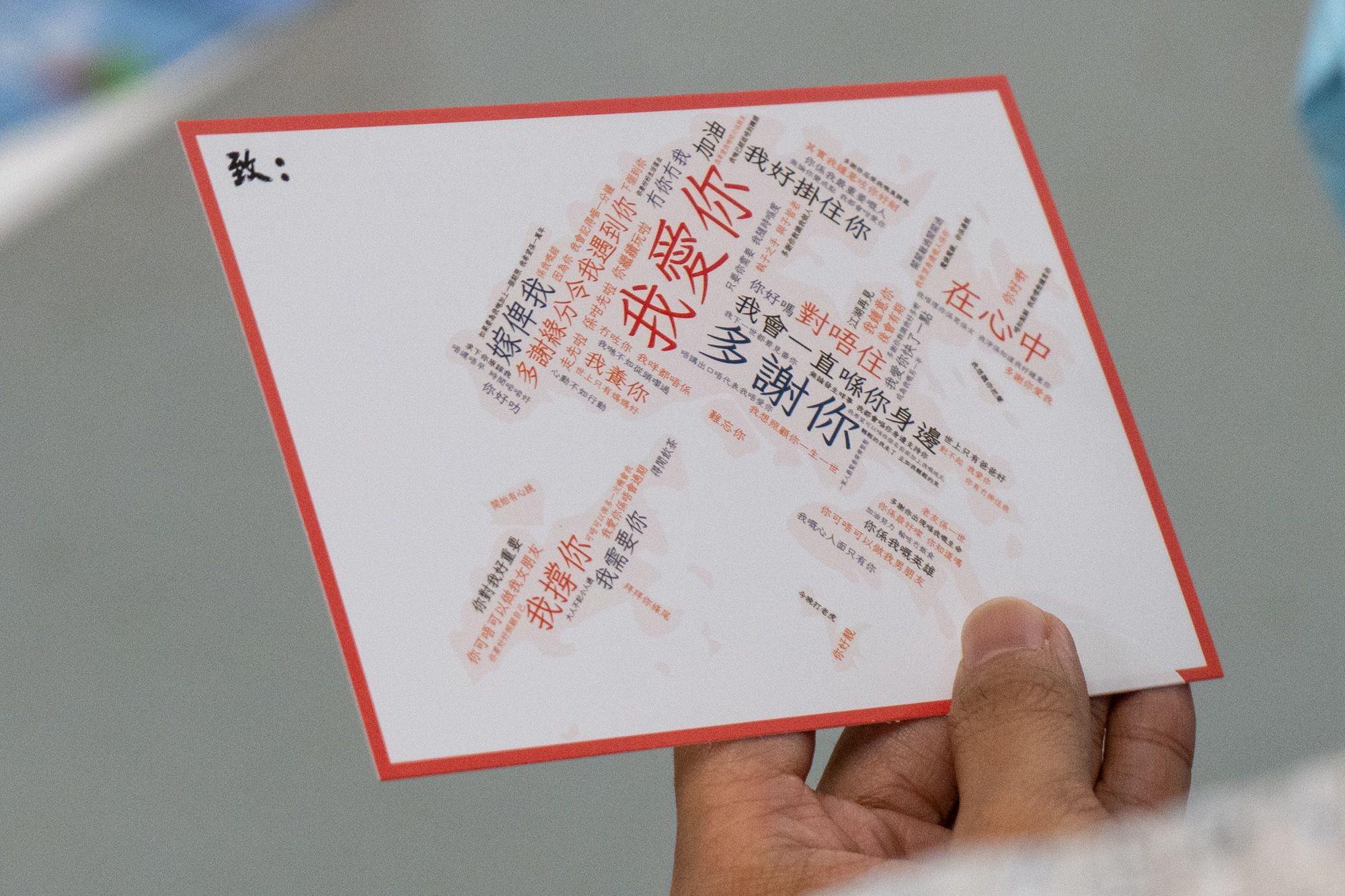
Many thanks!
We are delighted to have received so much support to make our project happen and would like to express our sincerest gratitude to all of you:
(in alphabetical order)
- Caritas Mok Cheung Sui Kun Community Centre: Social Worker Deep Luk and the group of elderly
- Carmen Chan
- Ching Yee Pik
- ChowTV: Founder Wing Chow
- Elderly residents at Wong Tai Sin (vox pop): Ms Wong, Mr and Mrs Tsoi
- Ginko House: Social Worker Ray Tam and Chef Fen
- Happy Ageing Lab: Co-founder Mo Kar Him and Helper Dannie Lei
- Hospital Authority
- Legislative Council of HKSAR: Social Welfare Representative Tik Chi Yuen
- MakerBay Foundation
- Mealingful: Co-founder Bianca Ho
And last but not least, our supervisors: Foon and AJ
Illustrated icons: Person icons created by Vitaly Gorbachev, Grandma icons created by Freepik, Baby icons created by Freepik, Elderly icons created by Freepik, Emigration icons created by Freepik, Business and finance icons created by cah nggunung, Old man icons created by Freepik, Age icons created by Freepik, available on Flaticon
Thanks for reading
